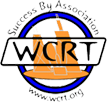
Posts Tagged ‘real estate’
New Mortgage Rules Likely to Delay Future Residential Real Estate Closings
The Consumer Financial Protection Bureau (“CFPB”), a new federal agency created in 2010, is imposing new financial disclosure rules for residential mortgage loans applied for on and after August 1, 2015. The new rules will eliminate the HUD-1 settlement statement which has been part of residential closings for many years and replace it with new forms, one of which, the Closing Disclosure, must be sent to the borrower/buyer a fixed number of days in advance of closing. Because large fines of as much as $1,000,000 per day can be imposed on lenders for violating the new rules, it is expected that lenders will err on the side of caution in following the new rules.
Under the new rules the Closing Disclosure, which contains all of the financial information about the closing must be received by the buyer/borrower at least three days before closing. Since it is expected that most lenders will mail the disclosure and because of the time periods for receipt of mailings imposed by the new rules, the Closing Disclosure will have to be mailed more than a week before a closing can occur. Adding to that period, the additional time to be imposed by national lenders for preparation and processing of the form, many lenders are likely to require final closing figures as much as 12 to 14 days in advance of closing.
Thus, for a real estate deal which today could be closed a day or two after final “clear to close” loan approval, the new rules will likely push off that same closing for two weeks after final loan approval.
Feel free to contact an Illinois attorney experienced in handling all aspects of real estate closings for both buyers and sellers at Logan Law, LLC if you have questions about the sale of your Chicago area real estate or any other area of the laws governing the purchase or sale of real estate.
Our Real Estate Law Service In Chicago Continues To Impress Our Clients
See why our real estate law in Chicago continues to receive rave reviews. We strive for excellence each day. Choose the best today.
Foreclosure or Other Real Estate Law Questions? Give Us a Call
In times of financial difficulties, which can happen to anyone, one major concern is homeowners who fear they may face foreclosure. Your first instinct is to hire a lawyer; however, there are steps you can take that may save your house without the added expense of attorney fees. Here are a few options you should explore before giving us a call.
Your lender may arrange a repayment plan based on your current financial situation. There can be a reduction or even a suspension of your payments for a determined amount of time. This is called a special forbearance and it is worth looking into.
A mortgage modification allows you to refinance your debt and extend the term of your mortgage loan. This helps you as it may reduce your monthly payments. If you qualify, your lender may work with you to obtain an interest free loan from HUD that will decrease your monthly payments.
Other options available to avoid foreclosure include a pre-foreclosure sale. This allows you to sell your property, pay off your loan and avoid credit rating damage. The last line of defense is a deed-in-lieu of foreclosure. Basically, this is where you just give your house back to the lender. Again, there are qualifications that need to be met before this can happen.
If you have any questions concerning foreclosure or real estate law, schedule an appointment and we will see what we can do for you.
See Why We Are The Best Choice When It Come To Real Estate Law
See why we are the best choice when it comes to real estate law. We would like to discuss your situation with you personally. Be sure to contact us soon.
Now Is The Time To Get The Best Real Estate Law Service Around
Now is the time to get the best real estate law service with us. We are passionate about what we do. Choose quality and professionalism today.
We Are Chicago Lawyers That Understand Real Estate Law
The legal definition of real property is land and anything growing on it or affixed to it or built upon it. That is, man made buildings are real property as are crops. Real property can be characterized as property that is stationary or it doesn’t move. It can also be classified as real property if it is attached to the land. Real estate is the same as real property and both terms can be used in the same sense. Real estate or real property also includes anything that might be under the property. This might include oil or gases or even minerals that can be found under ground.
Real property, as well as personal property, can be transferred. All sales involving real estate or real property need to be in writing. That way there is a record of the transfer. Real property cannot be moved, so there is a symbolic transfer that needs to occur before the transfer is recognized. In most situations, this is done by a deed transfer.
Private property is property that is commonly owned by an individual or in some cases a group of people. Public property is real property that is owned by a city, county, state or federal government. There are different laws governing private property and public property.
If you have any questions or concerns with property conflicts, you might want to hire an attorney. We are Logan Law, LLC and we understand real estate law and stand prepared to represent you. We pride ourselves in providing Chicago residents with expertise and sophistication without the hassle some other firms have.
Selling Chicagoland Real Estate – The Attorney Review Paragraph
Commonly available printed form contracts for the purchase and sale of real estate in the Chicago Metropolitan area contain a paragraph which is very useful for both buyers and sellers. The paragraph is commonly referred to as “Attorney Review” or “Attorney Modification”. Under the terms of the paragraph, attorneys for both buyer and seller have a set period of time after the contract is signed by both buyer and seller and initial earnest money is deposited to review the contract and propose changes. The period is usually five to ten business days. This allows the buyer and seller to agree on the basic terms of the deal, such as purchase price, closing date and mortgage contingency, before going to the expense of employing an attorney.
Once the contract is signed, the executed contract is delivered to the attorneys for the buyer and seller. They can then review the contract, confer with their client as to any issues, clauses or wording of concern to them and then propose appropriate changes in the contract to the attorney for the other side. In most cases, proposed changes can be worked out and the contract then proceeds to closing. However, if the parties’ attorneys cannot reach agreement, either attorney can terminate the contract, in which case the initial earnest money is returned and the property put back on the market. As a kind of safety blanket to real estate buyers and sellers allowing them to sign otherwise binding agreements before they hire an attorney, the Illinois courts have held that the attorney may disapprove the contract during the attorney review period for basically any reason.
Feel free to contact an Illinois attorney experienced in handling all aspects of real estate closings for both buyers and sellers at Logan Law, LLC, if you have questions about the sale of your Chicago area real estate or any other area of the laws governing the purchase or sale of real estate.
Real Estate Sellers Must Disclose Known Defects
Sellers of Illinois properties improved with one to four residential dwelling units are required to disclose to buyers any knowledge they have of building defects. The Illinois Real Property Disclosure Act requires sellers to complete, execute and deliver a residential Real Property Disclosure Report before any contract to sell real estate is executed.
The Disclosure Report requires Illinois real estate sellers to disclose any knowledge they have of any building defects, including but not limited to flooding, recurring leakage, defects in basements roofs, foundations, plumbing or electrical problems as well as defects in the heating, ventilation or air conditioning systems. If prior to closing the real estate, the seller becomes aware that the Disclosure Report is in any respect inaccurate, the seller has a duty to supplement the Report in writing.
An Illinois real estate seller is not liable for errors, omissions or inaccuracies in the real estate Disclosure Report if the seller had no knowledge of the inaccuracy, reasonably believed the defect had been corrected or if the inaccuracy was based upon information furnished by a public agency, licensed professional or by a competent contractor which relied upon by the seller.
Feel free to contact an Illinois attorney experienced in handling all aspects of representing real estate sellers in Chicago area real estate closings at Logan Law, LLC, if you have questions about sale of your Chicago area real estate or any other area of the laws governing the purchase or sale of real estate.
Contact The Best Real Estate Law Firm In Chicago For Help
The real estate market is often a roller coaster of decision making, pressure, and sometimes bad experiences. If that is the case with you, contact our real estate law firm in Chicago for help. With Logan Law, LLC, you’ll find the solution to your legal concerns or worries. Don’t hesitate to get started today! Visit us online for a free consultation.
Fight For Your Rights With Our Real Estate Law Firm In Chicago
Choosing to defend your real estate legal case is quite a challenging choice. With Logan Law, LLC, we can help make the process go a little smoother. Our real estate law firm in Chicago is your best bet for a positive outcome in court. Choose the best of the best to represent your case. Give us a call today to get started as soon as possible.








